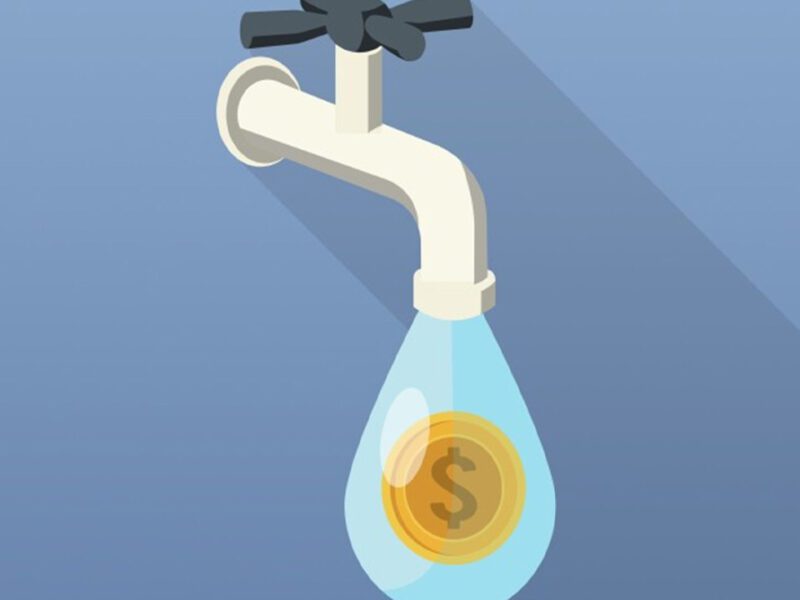
Florida leads nation in child drownings. Lawmakers take aim at fixing that.
South Florida Sun Sentinel | By Caroline Catherman | February 7, 2024
For years, Florida has led the nation in child drowning deaths, and 2023 was no exception. Florida Department of Children and Families data shows that at least 97 kids drowned to death last year, 14 of them in metro Orlando.
This continues a trend years in the making: 2022 saw 93 kids drown, 99 in 2021, 69 in 2020, 65 in 2019, 88 in 2018, and 82 in 2017. Four drowned in Orange County, one in Lake, four in Osceola and five in Seminole.
Legislators have proposed many fixes to this crisis over the years. This year, the issue has renewed attention, and Central Florida experts on swim safety say they believe several bills could help cut down on drowning deaths in the state.
“This year, for some reason, there’s some momentum,” said Brent Moore, executive director of the Children’s Safety Village and lead for the Central Florida Water Safety Task Force.
One proposed bill that would be a “game changer” for Central Florida, Moore said, would give free swim lesson vouchers to kids 4 and under in families below 200% of the federal poverty level – about $60,000 for a family of four. The bill, SB 544, has unanimously passed several Senate committees already.
The bill leaves much of the specifics of the program up to the Florida Department of Health and calls for the health department to try to secure at least one swim lesson vendor in each Florida county.
Swim lessons may seem relatively inexpensive – the city of Orlando offers eight-session summer courses at $40 for residents, $50 for nonresidents, for instance – but that can still be a barrier to families who don’t have the spare cash, Moore said. The Children’s Safety Village offers scholarships to its survival swim classes for young kids, and many other Orlando-area organizations offer free or discounted lessons as well, but they aren’t able to meet demand, he added.
“We would love for that bill to get passed,” Moore said. “We definitely want to be one of those locations that accept the vouchers.”
About 72% of the children who drowned to death last year in Florida were 3 and under, according to DCF data.
Swim lessons are just one factor in drowning prevention, however, and not every family lives near a public pool.
In 2019, the American Academy of Pediatrics began recommending swim lessons for young kids, citing a study from 2009 that found the lessons provided at least a small amount of protection from drowning. But the group cautions that “swim lessons and swim skills alone cannot prevent drowning.”
There are five “layers of protection” in drowning prevention: barriers, supervision, swim lessons, life jackets, and CPR training.
Another proposed bill, SB 274, the Kareem Angel Green Act, would require organizations like summer camps or schools that take kids to bodies of water to get parents to attest, in writing, whether their children can swim. Kids at risk of drowning would be required to wear flotation devices.
It’s named after the son of Osceola County resident Arkeisha Reese, Kareem, who drowned at age 5 on a school field trip to a swimming pool in 2006.
Similar bills have been filed and failed before. Republican Sen. Ana Maria Rodriguez introduced the Kareem Angel Green Act last year but it didn’t get a single hearing.
This year, Rodriguez reintroduced the legislation. On Tuesday, it unanimously passed the Senate’s Children, Families, and Elder Affairs Committee during the committee’s final meeting of the 2024 legislative session.
Moore pointed out, however, that most of the deaths last year took place in pools in kids’ own backyards.
Florida has not taken any major steps to regulate residential pool safety since 2000, when the state passed legislation requiring residential pools built after October of that year to have a safety feature such as locked pool covers or alarms on doors leading to pools.
That legislation, then and now, was celebrated by advocates but also brought concerns about the thousands of residential pools built before 2000.
A pair of proposed bills, HB 719/SB 706, would require homeowners to install at least one safety barrier to their pool before they can sell their home – regardless of what year the pool was built. There hasn’t been any recent movement on those bills, which means they are likely dead for the session.
“It may not get passed this year … but we’re going to keep trying to get it next year,” Moore said.
One final piece of the puzzle is making sure that efforts to prevent drowning consider children with autism.
Children with autism spectrum disorder are at far higher risk of drowning than children without it: 12% of the kids who drowned in Florida last year were diagnosed with autism, even though only about 1-3% of the population has that diagnosis.
People with autism have a heightened tendency to wander off without telling anyone and are often drawn to large bodies of water, including lakes and retention ponds, said Stacey Hoaglund, President of the Orlando-based Autism Society of Florida.
“I don’t know a parent with a child with autism — whether it’s a young child, older child or adult — that hasn’t had that moment in their life where they turn and their child is gone,” Hoaglund said. “If they’re interested in water, which many of them are, they will go towards the water without understanding that they could die if they don’t know how to swim.”
She praised the state’s proposed voucher program but said she hoped instructors would be given training in how to teach children with autism. These kids often need one-on-one instruction and may need more swim lessons than the average kid.
“We definitely want to make sure that families know that it takes a little bit longer for a kid with autism to learn the skills,” Hoaglund said.





